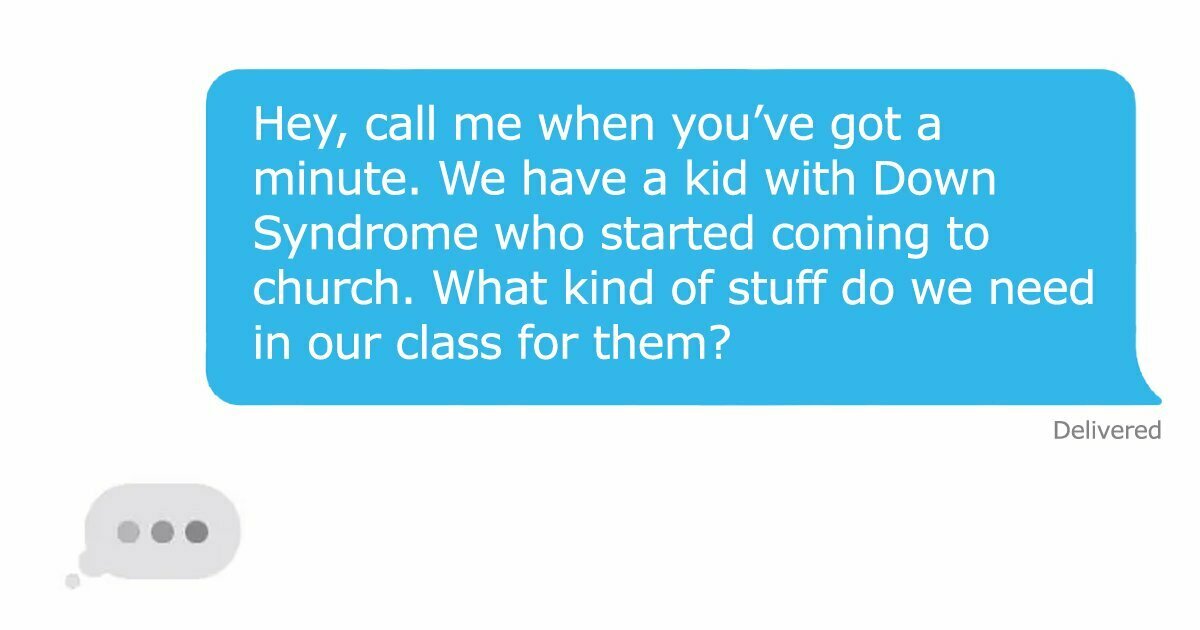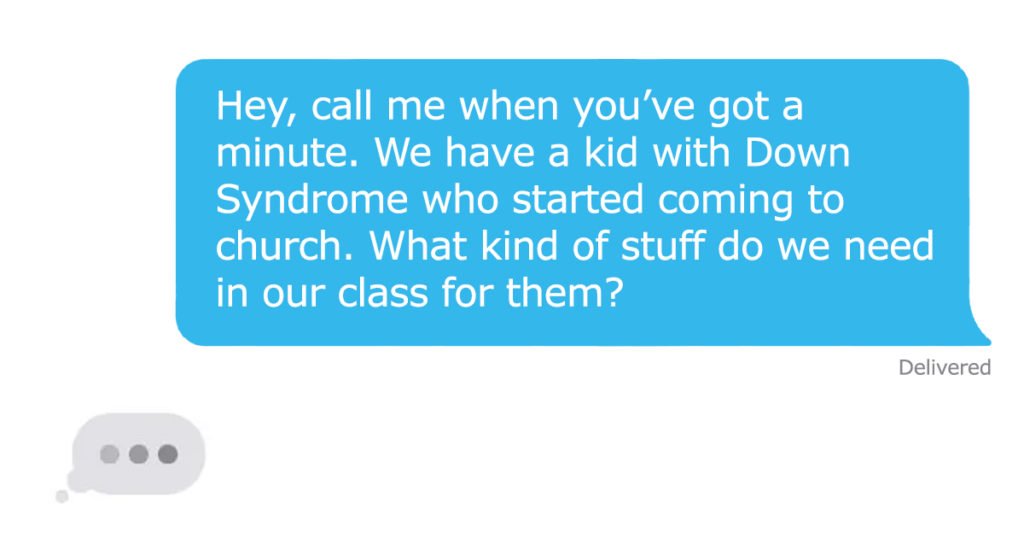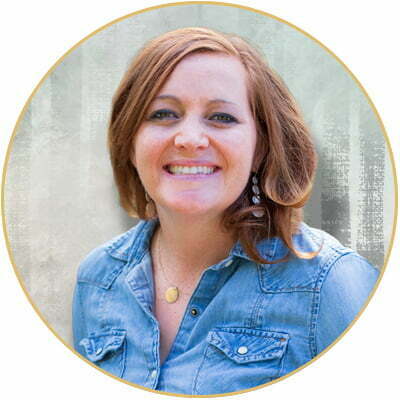

“Hey, call me when you’ve got a minute. We have a kid with Down syndrome who started coming to church. What kind of stuff do we need in our class for them?”
“Can I share contact info with our children’s pastor? Our kindergarten class has twins with autism and the pastor is overwhelmed and unsure how to support them.”
“Sorry to text so early, but a bunch of buddies called out sick this morning and I can’t find anyone else. Not sure what to do next.”
These texts, and many texts similar to them, often pop up on my phone throughout the week. Messages from fellow pastors in my denomination, friends I have met through a huge network of special needs and disability ministry leaders throughout the country, friends from college working in churches, and more. Though every congregation and community is different, the question of “How do we support those in our churches with disability?” is largely the same: Just start.
I tell every church in every consult I have ever done “You start where you start. And there is no shame in that”. LeBron James wasn’t born an NBA All-Star. The first cell phones couldn’t access the internet and had T-9 texting capabilities. The Wright Brothers’ maiden voyage didn’t circumnavigate the globe. We start where we start. And where we begin does not define what we will become.
Perhaps your church has a well-established disability ministry and you are looking to expand into supporting respite or adult day centers. Perhaps your church has no idea that people with disabilities exist in their communities. Or perhaps your church is somewhere in between those two extremes. Wherever your church may lie on the support spectrum, it is important to accurately assess where you are starting from before you begin to move forward.
Once your church has an accurate understanding of where the starting line is, you can begin galvanizing people to join you at the starting line. Building an inclusive culture, one where those with disabilities are welcomed and celebrated is not a solo venture. For real, lasting change to happen, those in the church must be willing to join together at the start line and commit to running the path ahead. One inclusively-minded person cannot teach every Sunday school class, preach every sermon, lead every worship song, or attend every small group the church has to offer. It takes a team of people ready and willing to gather at the start line so the work of including those with disabilities in their church more fully and more authentically can begin.
While it is impossible to predict what the journey will be like from the start line, we can prepare our churches for what is to come. In order to run the race with consistency, we must commit to seeing the process through, even when we are standing at the start line. Without proper preparation, supporting those with disabilities in our churches will require us to examine our current systems, processes, biases, and beliefs in ways that may leave us feeling fatigued and slow down our pace.
Nobody would begin a hike in the Grand Canyon in July without carefully planned amounts of food or water, nor should churches begin the work of inclusion without an understanding of the life-giving and ministry-sustaining tools they may need along the journey. These tools may differ from church to church but can include things like adequate personnel and financial support, openness to change, flexibility, innovation, clear communication of ministry vision and mission, and humility. Gathering those items at the start will most certainly make forward momentum more consistent and more sustainable.
So next time your church finds itself unexpectedly welcoming a new family impacted by disability to children’s church, inviting teenagers with autism to high school small groups, creating diverse leadership teams, or assisting someone utilizing a wheelchair find a space in the sanctuary large enough to fit themselves and a companion and the question of “how do we support people with disabilities in our church” is at the forefront of your collective consciousness, remember to just start. Starting is the first step to answering the oft-asked question.
If you need help with “pressing start”, we would love to connect! Let’s setup a free consultation. In the meantime, please take some time to browse through our “Start Here” resource for assistance.


